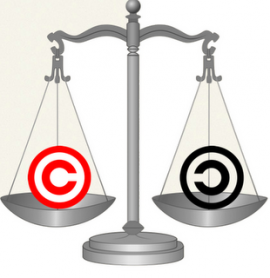
The WTO TRIPS Agreement

Popular In Trademark
Trademark Registration Overview How To Trademark A Name Trademark Symbols Remedies To Trademark Infringement Defenses Against Trademark Infringement Paris Convention How To Report Trademark Infringement Tm Symbol Trademarks Common Law And Trademarks Types Of Passing Off How To Register A Trademark The Madrid Agreement Overview
Current international standards for the enforcement of trademark law The World Trade Organization's Agreement on Trade-Related Aspects of Intellectual Property Rights, otherwise referred to as the WTO TRIPS agreement, establishes basic and minimal standards for the enforcement of such areas of intellectual property rights as copyright and trademarks.
Signatory nations to the WTO TRIPS agreement are required to pass laws giving protection to the free enjoyment of intellectual property rights within the country and in relation to other countries. The drafting of the WTO TRIPS agreement recognized the changing nature of trademark and copyright issues in a world marked by an expansion of international commerce and use of digital technology.
The WTO TRIPS agreement was negotiated during the Uruguay Round of the predecessor to the WTO, the General Agreement on Tariffs and Trade (GATT), a creation of the United Nations in place since the end of World War II. Impetus came from the United States government and various American businesses for the creation of a system which would recognize intellectual property rights as commodities in of themselves. The Uruguay Round lasted from 1986 to 1994 and ended with the creation of the WTO. The TRIPS agreement went into effect in the beginning of 1995.
Article 15 of the WTO TRIPS agreement provides the basic definition of a trademark as is applicable for international law. The basic WTO definition of a trademark is the use of an individual sign or arrangement of signs by a provider of goods and services in a way intended and able to set them apart from those of other providers. It allows for the registration of any trademark falling under these terms with the caveat that it must be "visually perceptible."
Following articles of the WTO TRIPS agreement deals with subsidary issues of trademark right enforcement. The WTO TRIPS agreement derives its provisions for the protection of trademarks considered to be "well known" from the comparable article in the Paris Convention, the foundational legislation on intellectual property right standards, Article 6bis.
This provision, given in Articles 16.2 and 16.3, requires the refusal of registration to trademarks held to be excessively similar to previously established trademarks of notable repute. It also specifies that well-known and newly applied-for trademarks may conflict with each other even if they are applied to different areas of goods and services. Article 17 of TRIPS allows for the "fair use" doctrine to be observed in trademark right protection.
The terms which WTO members may set for the "lifespan" of trademark registration cannot, by Article 19 of TRIPS, fall below seven years. The issue of trademark registration lapsing under international law is addressed in Article 19, which mandates a waiting period of three years before ownership to an unused trademark may be allowed to lapse and provides for exceptions in cases out of the hands of the trademark owner. Article 20 provides for the free use of a trademark after it has been registered according to the owner's wishes.
NEXT: A Full Guide to the Madrid Agreement




















